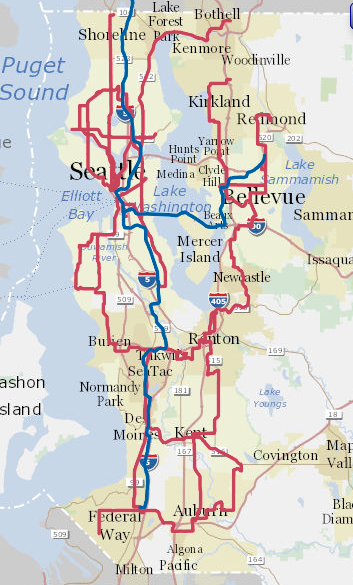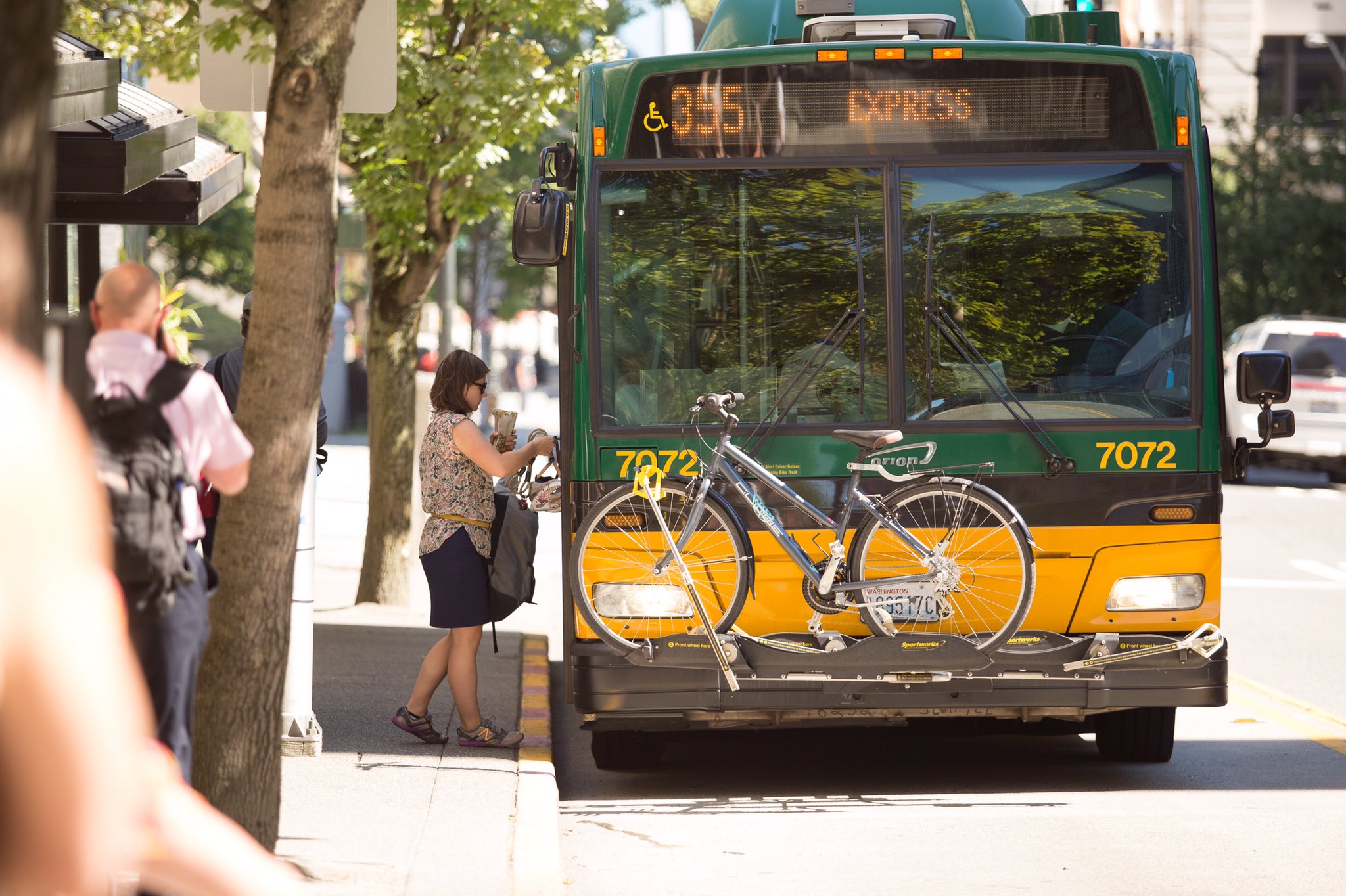On Wednesday, King County Executive Dow Constantine unveiled a proposal for a massive investment in King County Metro Transit that will help alleviate overcrowding, improve reliability, safety, and security for rides and working conditions for Metro’s bus drivers. The proposed $1.6 billion biennial operating budget also includes a six-year $1.8 billion capital investment program.
These planned investments would help support Metro’s long-range vision plan “Metro Connects” which defines Metro’s future service plans for the county at large.

The budget includes $30 million to relieve overcrowding on 27 routes, improve reliability on 60 routes, and add additional service on 18 routes bringing them in line with intended service levels. Under the County Executive’s proposal, some 300,000 new service hours would be phased in over the next two years for those purposes.
In addition, King County will be spending over $3 million for more police and security officers and $8 million to equip all Metro buses with video cameras by the end of 2018, representing a major commitment to improved transit safety.
Finally, over the next six years, King County will invest over $7 million building and rehabilitating bathrooms at route terminals for Metro bus drivers and allocate more than $200 million to increase capacity for a growing bus fleet. A new bus base is likely to be sited somewhere in South King County to house many of the new buses.
As a region, we are increasingly getting around by transit. To meet the needs of riders across our system, we’re making smart investments that will help relieve over-crowding now, and make sure we’re doing the right things to create a more mobile future. With a strong local economy, we have the opportunity to make life better for our customers and for our transit employees. And we will target investments for long-term efficiencies.
Dow Constantine, King County Executive

Metro currently operates an impressively large transit network, including more than 200 regular and express bus routes, six RapidRide routes, and 15 Demand Area Response Transit (DART) routes. The agency also provides extensive contract service in King County for Sound Transit and the City of Seattle to operate express bus routes, Link light rail, and the two-line Seattle Streetcar.
Metro Connects promises to follow up on the six-year capital investment program with more to come: “To make the Metro Connects vision a reality, Metro would develop a rolling six-year Implementation Program in collaboration with riders, community members, cities and transportation stakeholders.” Metro Connects envisions 26 additional RapidRide routes and sets a goal of 30 percent more buses, 70 percent more service, and doubling ridership system-wide by 2040.
According to Executive Constantine, transit responsibilities account for approximately 20% of King County’s $10 billion biennial budget and is currently funded by fares, federal grants, contract service revenue, as well as local sales taxes and other dedicated funding sources.
The proposed 2017-2018 biennial budget for Metro will be handed over to the King County Council on September 26th, which will undoubtedly solicit great interest and deliberation by the councilmembers. The County Executive anticipates final adoption of the proposal by Thanksgiving.
Gordon Werner
Gordon is a native New Yorker who wisely chose to leave the Northeast in the early 1990s. A past resident of Belltown, and Queen Anne, he currently calls First Hill home. He is a board member of the First Hill Improvement Association (FHIA) as well as the FHIA Transportation Committee Chair and is constantly looking for ways to improve transportation up the hill.

